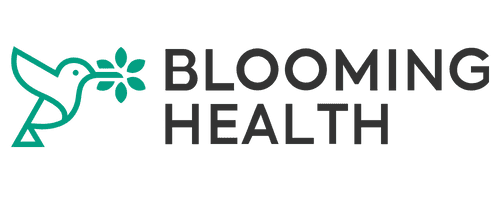Sep 3, 2025

One Vision, hosted by Theodora Lau, is where purposeful innovation takes center stage. It’s a space where impact meets innovation.
Lau herself is the founder of Unconventional Ventures, a book author, speaker, and one of American Banker’s Most Influential Women in FinTech. Her podcast provides a space for innovators, entrepreneurs, and leaders to dive into their process, strategies, and stories of wins and losses that brought them to success.
In a recent episode, Lau sat down with Nima Roohi, CEO and co-founder of Blooming Health, to talk about how technology can transform the way we deliver social care. What followed was a conversation that cut to the heart of one of today’s most urgent questions: How do we use AI to scale compassion without losing the human touch?
Technology That Listens
Blooming Health’s roadmap begins with a deceptively simple idea: meet people where they are.
“The inlet for the population to address their need is to have a conversation with them,” Roohi explained. “It’s basically to be able to have a conversation with them in their channel of comfort, in their language of comfort, in their time of comfort.”
From that engagement, Blooming Health automates the complex workflows that normally overwhelm social workers and care managers. But automation, Roohi stressed, only works if it fits seamlessly into existing systems.
“If you’re building AI in healthcare, you need to be interoperable,” he said. “Else you’re just automating a piece of work and creating another piece of work.”
Scaling Human Touch, Not Replacing It
Lau asked Roohi about one of the most common fears surrounding AI: does it erase human connection? Roohi’s answer was unequivocal.
“Every time [care managers] call an older adult… they end up talking to them for half an hour, 45 minutes. The primary reason being that older adults might be talking to a care manager and that's the only human being they talk to during that day.”
The challenge, however, is that human time is limited. “The art here is bringing in technology and data to figure out where that human touch is the most necessary,” he said. “If you have a system now that can talk to a million people… then help you direct your resources to those people that have the biggest need.”
His thesis: “AI could actually make human intervention a lot more efficient and impactful… accentuated with a magnitude of better outcomes.”
A Vision for Social Care Like Tap Water
Roohi’s vision for the future is nothing short of universal access.
“Our vision is to make social care accessible in every household like tap water,” he said. “You can talk to a system and get the care you need. You don’t go through hundreds of pages of documents… You get the care you need the same way you get a ride showing up to your door today when you make a click on Uber.”
The implications are massive. “Even if… we reduce the cost by 1% we are talking tens of billions of dollars,” he noted. And beyond dollars, Roohi sees the potential for stronger communities: “I actually think that the polarization we see in politics today could be reduced if we have better social care infrastructures in the communities.”
Back to What Matters
Lau described her conversation with Roohi as almost therapeutic, a reminder of why we build technology in the first place. Roohi agreed, recalling Blooming Health’s earliest mission: addressing social isolation and loneliness.
“It turns out that social isolation and loneliness is a function of broader types of needs,” he said. “If you can address the needs of that individual, you have a higher probability of social engagement.”
That belief continues to anchor Blooming Health’s work. “If I were to pick one place,” Roohi said, “let’s use technology to address some of the basic needs of the population so that the time they have… is well spent with their families and loved ones.”
Or, as he put it more simply: “The future is gonna… let us spend more time with our loved ones.”
One Vision exists to spotlight leaders who are reimagining how innovation can build a better, more sustainable world. In Blooming Health, Lau found not just a health-tech startup, but a philosophy: technology as a tool to scale empathy.
As Lau herself reflected during the episode, “If innovation does not make the world a better place then what’s the point?”
In Roohi’s words and Blooming Health’s work, we see the answer.
Want to see how Blooming Health helps organizations scale compassion and reach more people with care? Learn more about our platform.







